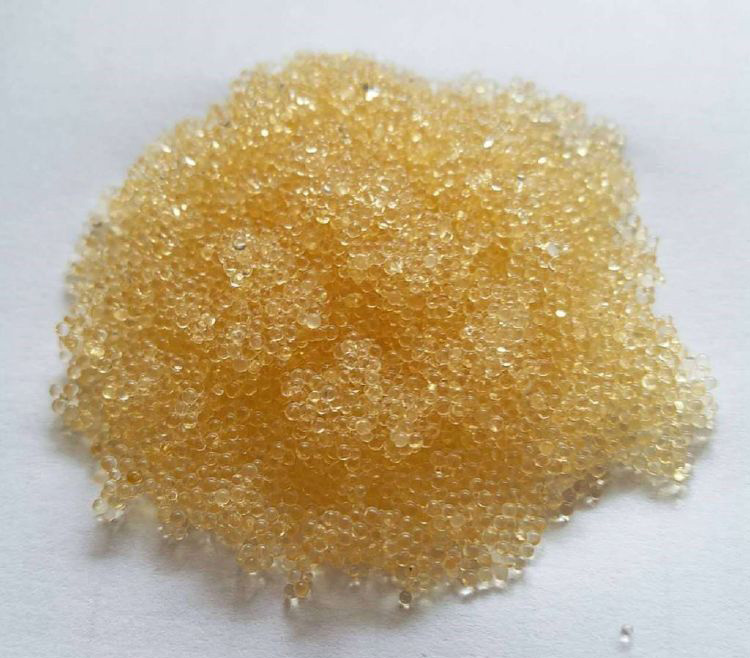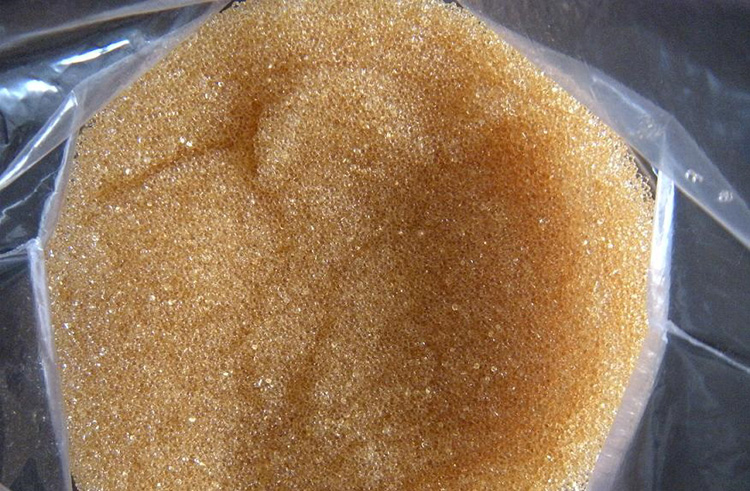In water treatment, wastewater treatment, and the chemical industry, anion exchange resin is a widely used ion exchange material, with broad applications in various fields. As environmental protection requirements increase and technology advances, the demand for anion exchange resins continues to rise. So, how much does anion exchange resin cost per ton? This article provides an overview of the anion exchange resin market, its main applications, and how to choose the right product to help you better understand this industry.

Anion exchange resin is a synthetic polymer material with ion exchange properties, primarily used to remove anions from water, such as sulfate, chloride, nitrate, and others. By exchanging ions between the resin and the water, anion exchange resin effectively improves water quality and is widely used in water treatment, wastewater purification, and ion exchange processes in the chemical industry.
The core function of anion exchange resin is to remove harmful anions from water through chemical reactions, thereby purifying water and improving industrial production processes. Due to its simplicity in operation, high efficiency, and relatively low cost, anion exchange resin has become an indispensable material in many industries.
The price of anion exchange resin is influenced by various factors, including resin type, quality requirements, market demand, and different manufacturers. As environmental protection policies become stricter and the demand for industrial wastewater treatment increases, the market demand for anion exchange resins has been growing steadily.
Currently, there are various types of anion exchange resins in the market, each suited to different application needs. While the price may vary depending on specifications and brands, users should focus on factors such as resin quality, performance stability, and the technical support provided by the manufacturer when making their selection. Choosing the right anion exchange resin can not only improve processing efficiency but also effectively reduce long-term operational costs.
Water Treatment
Anion exchange resins are widely used in the water treatment industry, especially in drinking water, industrial water, and wastewater treatment. By removing harmful anions from water, anion exchange resins effectively improve water purity, prevent equipment corrosion, and enhance water utilization efficiency.
Wastewater Treatment
In many industrial sectors, wastewater contains large amounts of harmful anions, such as in chemical, textile, pharmaceutical, and food processing industries. Anion exchange resins can effectively remove these harmful substances, helping enterprises meet environmental discharge standards. By periodically replacing the resin, wastewater treatment efficiency can be maintained, and environmental impact reduced.
Chemical and Pharmaceutical Industries
Anion exchange resins are also widely used in the chemical and pharmaceutical industries. For example, during metal extraction, anion exchange resins can be used to remove impurities and improve the purity of the product. In pharmaceutical processes, they are also used for purifying drugs by removing unwanted components.
Food and Beverage Industry
In the food and beverage industry, anion exchange resins are mainly used for water softening and sugar removal. They help improve product quality, enhance taste, and ensure that the water used in production meets safety standards.

Choosing the right anion exchange resin is critical to ensuring effective water treatment and minimizing operational costs. Here are some key points to consider when selecting anion exchange resin:
Clarify Application Requirements
Different industries and water quality conditions require different types of anion exchange resins. For example, industrial wastewater with complex water quality may require resins with higher pollution resistance, while drinking water treatment requires high-purity, highly selective resins.
Resin Performance
The performance of anion exchange resin is mainly reflected in its exchange capacity, exchange rate, and durability. When making a selection, it is important to consider how the resin performs under different working conditions and ensure that it can operate stably over the long term, reducing replacement frequency and maintenance costs.
Supplier Reputation and Technical Support
In addition to price, the technical support and after-sales service of the supplier are also important factors to consider. A supplier with rich experience can not only provide high-quality products but also offer necessary technical support and guidance to solve practical problems during use.
Environmental and Safety Standards
With the increasing stringency of environmental regulations, it is especially important to choose anion exchange resins that comply with relevant environmental standards. Ensuring that the product meets national or industry-specific environmental requirements can prevent potential legal issues in the future.
Founded in 2004, Hebei Huahuang Activated Carbon Co., Ltd. is dedicated to the research, production, and sales of activated carbon and related water treatment products. The company's products are widely used in water treatment, air purification, metal refining, textile printing and dyeing, and other industries. With years of technical accumulation and innovation, Huahuang Activated Carbon is expanding its product line to include solutions like anion exchange resins, aimed at improving environmental protection and industrial processes.
In addition to activated carbon products, Huahuang Activated Carbon continues to innovate and develop products such as anion exchange resins to provide efficient and eco-friendly water treatment solutions. Whether for municipal water supply, industrial wastewater treatment, or specialized water quality purification, Huahuang Activated Carbon leverages its technical expertise to promote sustainable development in the water treatment industry.
Anion exchange resin, as a crucial material for water treatment, continues to see increased demand due to rising environmental protection standards. Understanding the market overview, applications, and selecting the right products is key to optimizing water treatment processes and reducing operational costs.
By gaining a thorough understanding of the performance and market demand of different resins, you can make more informed decisions and support the sustainable development of your enterprise. If you have any further questions or need technical assistance, feel free to reach out, and we will be happy to provide you with tailored solutions.
None of our operators are available at the moment. Please, try again later.